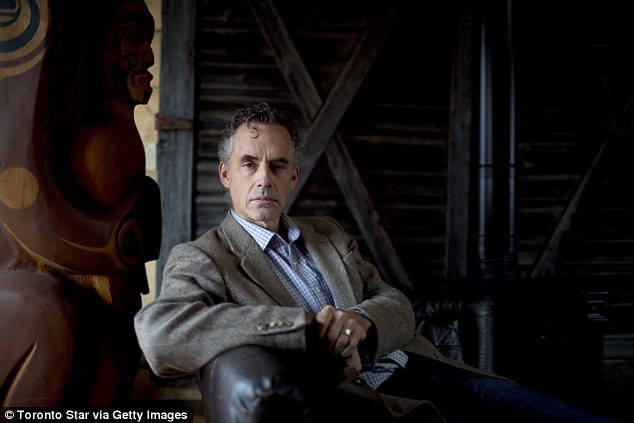
Peterson er Canadier og professor i psykologi ved Toronto University. Jeg husker svagt at høre om ham for nogle måneder siden da min opmærksom blev fanget af et YouTube klip hvor han blev udfordret af et antal transkønnede studerende for at nægte at bruge deres præfererede pronomen (stedord). Du vil måske spørge hvad der er så specielt ved det? Men for transkønnede så er det nu fastlagt af den Canadiske regerings lov C-16 og Peterson ser dette som et angreb på ytringsfriheden.
Kommentar: Denne artikel er delvis oversat til dansk af Sott.net fra: Professor Jordan B. Peterson: A hero for our times?
I had forgotten about him until about a month ago - he was interviewed on Channel 4 in the UK and he challenged the interviewer, Cathy Newman, for her incorrect interpretation of the gender pay gap and patriarchy. She admitted on air that it was a "gotcha" moment when he rebuffed her arguments. Since then he has become a free speech celebrity and his latest book 12 Rules for Life: An antidote to Chaos is number one on the best seller list in the US and Britain, even outselling Fire and Fury, the exposition of the Trump White House by Michael Wolff.
Why is Peterson - previously almost unheard of in Europe - now such a hit? He writes very clearly and offers basic advice such as "Make friends with people who want the best for you", or "Assume that the person you are listening to might know something you don't" or "Be precise in your speech". This may seem like basic and anodyne stuff, but from Peterson's pen and lips it is told in the form of stories and tales that is compelling in its style and emotion. Much of this is available on YouTube, where it is both entertaining and instructive. He is a wonderful teacher.
Do not be duped into thinking that this is pop psychology and psychobabble, for to do so would greatly underestimate him. Peterson's work is informed by a multiplicity of distinguished sources including Dostoyevsky the writer, Carl Jung the psychotherapist, Nietzsche the philosopher, and the Bible. He also uses ideas from evolutionary biology and neurobiology. Themes from these are woven together to provide a guide to good and proper living. As he points out - life is tough and it encompasses suffering. We need to learn to cope with the inescapable travails of life and to draw on the richness of our ancient past as a guide.
He makes use of examples from the Bible and mythology - he refers to sin, hell, heaven, archetypes, human weakness, ancestory and God. Although not a theist or even a Christian in the traditional sense, he sees a wisdom in the Biblical stories that echo the myths that Jung alludes to. They provide us with our rich collective unconscious and have guided us and our ancestors for thousands of years. When asked if God existed, he says he doesn't think so, but adds: "I fear that he does!"
Why has he captured the public's imagination? Partly it's his style of parable-like storytelling and the powerful emotion, that imbues his presentations, especially to public audiences. Above all it's probably his message which is largely a critique of many aspects of modern culture. These include political correctness, the censorship of speech, the centrality of victimhood and the tendency to live in the here and now, while ignoring the rich history available to our psyche and our spirit. At a time when sexual and social roles have become jumbled and according to libertarianism's views there is no absolute right and wrong, with the only rule being not to hurt anybody, Peterson is articulating ideas that are striking a chord.
Not surprisingly The Guardian newspaper describes him as using pseudo-facts and engaging in conspiracy theories. Watch his YouTube clips and decide if this is an accurate depiction and if he really is "the stupid man's smart person" (as described by Tabatha Southey of Macleans, a Canadian magazine).
To his admirers, he is voicing ideas that were once common and mainstream, but have been shouted down in the course of the culture wars and the politically correct speech rules that dominated US campuses in the 80's and have now spread to Europe. They describe him as a "public intellectual". Perhaps it's a case of "Cometh the hour, cometh the man."



Kommentar: Se også: Hvorfor Kommunister afskyr Jordan Peterson